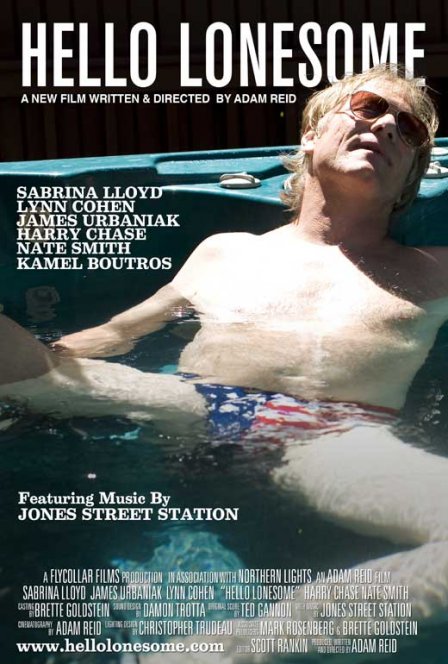Films about loneliness and boredom require space, silence, single persons standing in front of desolate (or populated) landscapes, sagging flesh, color palettes that look like pain pills, and stoic-as-fuck facial expressions. If there are to be any hysterics, they should erupt out of the mundane, abruptly, quickly, like the pulling of a hangnail with pulsations of warm pain-heat providing discomfort for hours. Roy Andersson’s You, the Living is perhaps the best film in 10 years to use as a benchmark for other filmmakers interested in translating quiet desperation, existential ennui to the big screen. I don’t know if director Adam Reid has seen You, the Living, but the guy could stand to learn a thing or twenty from Andersson’s patient dramatization of the modern world in which we live bleak days. Depression is a First World problem, but nothing screams WHITE PEOPLE like a gross handling of sadness in the name of melodrama, which is basically what Hello Lonesome amounts to in the end.
Bill (Harry Chase) is an aging voiceover guy who spends his days in his underwear, chopping wood, narrating Jerry Bruckheimer movie trailers, making waffles, and leaving voicemails for a daughter who won’t call him back. Eleanor (the underrated Lynn Davis) is sort of a suburban Maude to next-door neighbor Gary’s (James Urbaniak) Harold, but, unfortunately, without the sex. She’s a lonely widow and Gary is a recent divorcee, so they make dinner, drink wine, and awkwardly spend the night together clothed and tense. Gordon (Nate Smith) and Debby (Lloyd) meet online to have sex IRL and whaddya know, this blossoms into cohabitation and marriage. They have athletic sex in clean white sheets and fart on each other while watching football. They’re very pretty people. Debby gets breast cancer and Gordon ‘cracks’ via betting thousands of dollars on sports games while his wife wastes away inside their IKEA-decorated penthouse apartment.
There’s really not much else to say about Hello Lonesome other than it could give the Lifetime channel a run for its hysterical money. An overbearing score crescendos as montages of each character ‘losing their shit’ via sobfests, midnight drives, online gambling, and IVs dripping drag us to the end credits with an incredible feeling of ‘I just lost two hours of my life that I will never get back.’ I had to pause the screener when Bill accidentally locks himself inside his recording studio and proceeds to cry like a baby on the floor, weeping and whimpering as he squeezes the last drops from his bottled water and walk down the block to get a burrito, because I owed myself some kind of reward for making it an hour into this film. I don’t have anything nice to say because this film is an asshole; it treats human misery and human sorrow as grandiose emotions, vomiting catharsis every time a character utters some trite bullshit about how humans need to be touched, and how we’re all just trying to do our best in life. The script is Creative Writing 101, ‘Write What You Know’ type of self-awareness relying heavily on tragedy and empathy. It’s a condescending and obnoxious approach to creating art from tragedy; worst of all, it’s obvious.

